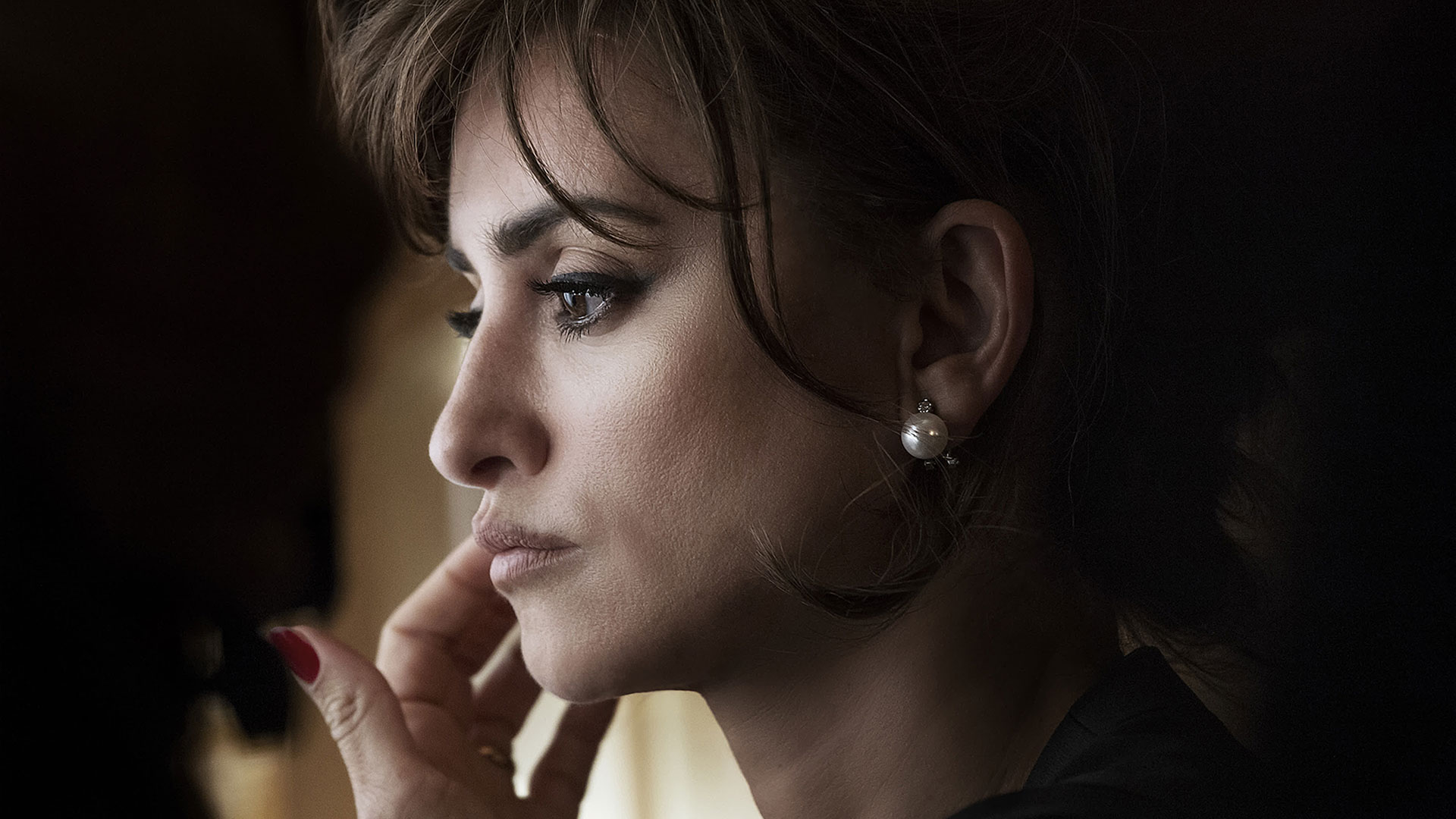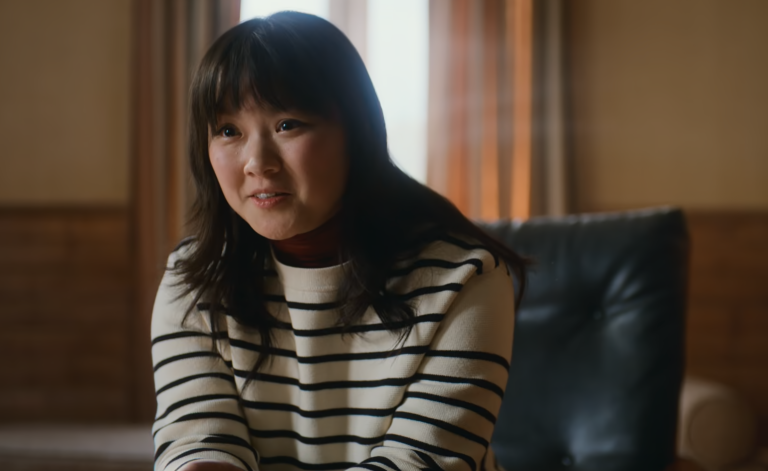While watching L’immensità, I kept having Déjà vu of the recent Elena Ferrante adaptation. Much like The Lying Life of Adults, you see a teen dealing with his anxieties and trying to express himself beyond what is expected from someone like him with a mother whose immense beauty overshadows or even burdens them. He has struggled to carve an identity free of conventions while living in Rome since the 1970s. His pain is exacerbated by the fact that he is part of an old-fashioned family dynamic.
Meanwhile, Penelope Cruz plays Clara, the mother of this teenager, who is on a rebellious strike against such limitations. She looks ravishing every moment she blesses others around her with. Not just her makeup, hair, and what she wears, but the way she presents herself unabashedly also makes her strangely appealing. You gravitate toward the innocence with which she roams around in the spaces allowed to her. Having left her home country of Spain for this marriage, she finds it hard to make peace with how monotonous married life is. Living a life devoid of the excitement she craves every breathing moment while enduring domestic abuse, you sense her anguish, which manifests itself through her erratic behavior.
However, in that behavior, what strikes out is her strong desire to escape. You also see how the child in her is often looked down upon for behaving and as someone who never got to experience the thrill she longed to. Her yearning to savor such a carefree childhood is evident. But you can tell there are untold tales behind her flight from Spain. We also see a portrait of her teenage child – Adri/Andrew, who rejects the compulsion to live according to the body he was born into. He refuses to let anyone tell him how he should or should not be, even when they make every effort to make him feel othered.
His mother, who is a rebel in her way, slowly starts to gravitate toward his strong desire for freedom out of such limitations. She accepts his wishes even when she can’t understand them. You can sense their protectiveness toward one another and a shared desire to resist conformity. Felice (Vincenzo Amato), his father, finds it difficult to accept their rejection of gender stereotypes. Meanwhile, the same stereotypes allow him to ignore his personal temperament issues. He expects Clara to be the sole bearer of domestic parental responsibilities and Adri to let go of his desires, which upsets him.

You sense Adri’s exploration beyond such societal expectations, during which he stumbles upon an unfamiliar and hitherto inaccessible neighborhood. He meets Sara and grows fond of her in no time. Sara seeks freedom just as vehemently and shows Adri a world beyond the bourgeois social structures that were most likely the only ones he could explore up to that point. He learns the way of life of this other social class, where new possibilities open up for him. You sense their mutual desire to grow beyond their present identities.
The film acknowledges Adri’s wishes without perceiving them plainly as teenage tantrums. Even Clara’s ennui behind her intense behavior is subtly explored, highlighting the constant closeted feelings she withholds. The film’s emotional center is the mother and her child’s alliance against Felice and his antiquated beliefs. You see beauty as a way of expression, and so does a dance in more than one context. Clara tries to fit in with other women from their social circles with the mask of beauty that conforms to it. There is a strong sense of doing it for the sanity of her husband, who cannot tolerate the feeling of losing control over others. Unfortunately, his anxieties create an emotional landscape allotted to her. All the while, she is the one being labeled as paranoid.
L’Immensità shines through its subtle inclusion of such details beyond its resonant exploration of their psyches. Penelope Cruz gives yet another intricate performance and adds layers to our understanding of her character’s anguish. She demands your attention through the profound understanding she brings to the screen. The cinematographer Gergely Pohárnok makes every frame sumptuously gorgeous while masterfully opening up the film’s emotional core. The script’s finite exploration of its larger themes, which could have gone beyond the known struggles of such individuals, is perhaps its only shortcoming, despite an overall soul-stirring execution.






![Dasvi [2022] Netflix Review: A Two-Hour Long Dud that Flunks the Boxoffice Test](https://79468c92.delivery.rocketcdn.me/wp-content/uploads/2022/04/Dasvi-Movie-Review-1-768x432.jpg)
![Parallax [2020] Review: A Film Occupied with its Intention but Stumbling in its Execution](https://79468c92.delivery.rocketcdn.me/wp-content/uploads/2020/07/Parallax-Movie-Review-2020-hof-768x432.png)